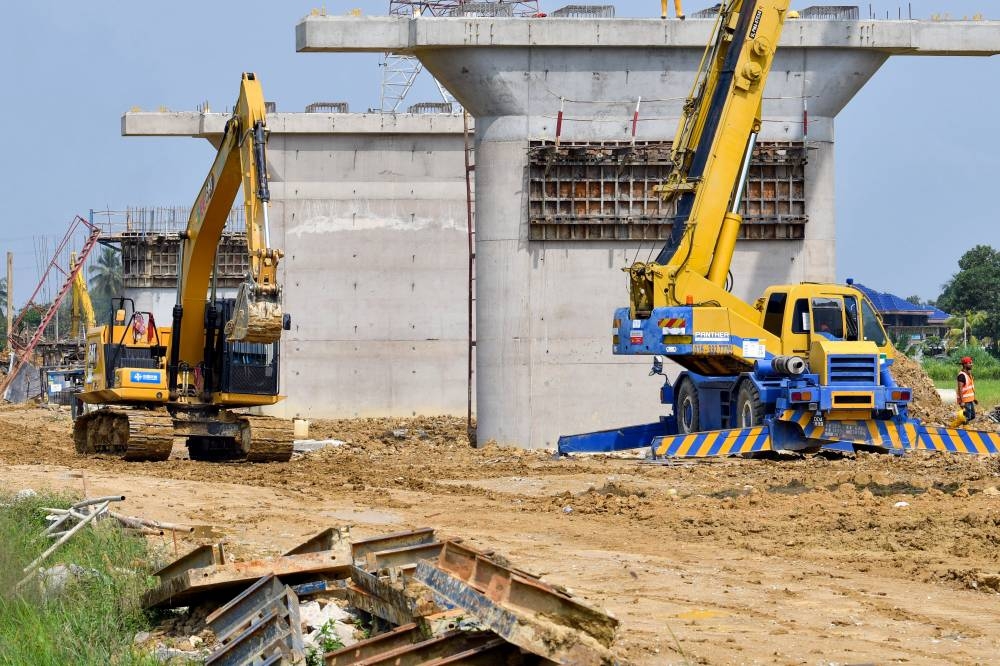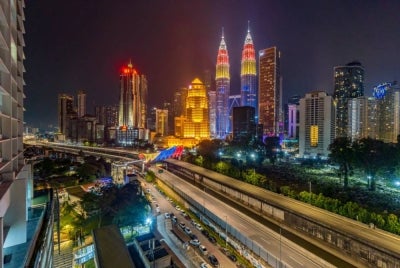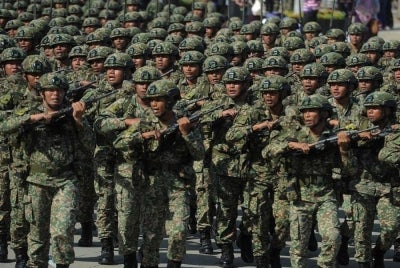Is China's investment in Malaysia benefitting local SMEs?
Mohd Fakhrulrazi Mokhtar28 Mar 2023 12:36pm

Under construction 665km ECRL project
In 2023 and 2024, two important anniversaries, namely the 10th anniversary of the Comprehensive Strategic Partnership and the 50th anniversary of the establishment of diplomatic relations with China will appear as opportunities and an appropriate time to continue generating positive momentum in bilateral relations.
Anwar is also expected to attend the upcoming 3rd Belt Road Initiative (BRI) Forum in Beijing, which is likely to be held in late 2023, while a separate official visit will also be conducted in late March 2023 to Beijing, China.
Malaysia should pay attention to the development of China's policies and priorities in foreign economic engagement, which has now expanded to the socio-economic domain.
BRI concepts such as Green Maritime Route, Health Silk Road, Green Silk Road and Global Development Initiative complement and expand the original "Belt & Road Initiative" focus on infrastructure connectivity and robust projects, with implications for public health, transfer knowledge, vocational education, capacity building, and sustainable development.
This is a relatively unexplored step and strategy in Malaysia-China relations.
Malaysia should accept the fact that China has the potential to be a destructive power and has shown certain coercive or disruptive tendencies in the past.
Malaysia is actually seeking diversification and multiple partnerships in its foreign policy reach, partly to hedge against a potentially hegemonic China. This hegemonic agenda should be changed to see a friendly and caring China.
Involvement with China, bilaterally as well as within a regional multilateral framework such as Asean, provides incentives for China to remain as a cooperation partner and constructive power, free from complicated and complex relationship.
Successive generations of Malaysian leaders and political elites, including Anwar, believed that to encourage China to remain as a constructive power, the best policy was to integrate China into an inclusive arrangement, rather than deterministically setting it up as a rival or a threat, which could be a rival or threats and fulfilling ones’ self-interest.
Anwar has long been a supporter of democratic values, but he will not include the notion of "democracy versus autocracy" in his foreign policy, as exclusive targeting of others (especially China) will only make it counterproductive.
Anwar is likely to maintain a "low profile" approach ever since the South China Sea issue, but will remain steadfast in protecting the country's claims and interests.
Overall, due to the South China Sea dispute, Malaysia's level of strategic trust with China has declined, especially since the 2020 West Capella incident and the 2021 Chinese military aircraft incident.
The most sensitive aspect of the security issue in relations with China is definitely the dimension of maritime security, especially on the South China Sea dispute.
So far, Anwar has not spoken much about this issue while taking a rather cautious tone.
Security cooperation with China will be limited mainly based on visits and mutual bilateral exchanges. This is an exception to the China-Malaysia joint exercise called Aman-Youyi, which was last held in 2018.
It is most likely that the follow-up exercise will be conducted again in 2023 as soon as possible. Success in the deadlock over the South China Sea issue cannot be expected without a strategic and effective movement under Anwar's leadership.
Anwar should be brave whereby Malaysia may review the bilateral negotiation mechanism between China and Malaysia that was established in 2019.
Malaysia needs to have more expertise and a deeper understanding of contemporary developments in China, and also to have a deep interest in making China to better understand Malaysia.
In this regard, it can be expected that the project of translating and publishing Anwar's writings in Chinese will commence soon.
Despite Anwar's reputation as an intellectual, his ideas are not well publicised in China. Dialogue between civilizations can be turned into a golden opportunity.
Beyond the economic aspect, Anwar also has a priority to see the Malaysia-China relationship through his own "civilizational lens".
Anwar has been a true champion of dialogue between different civilizations for decades. Therefore, increasing intellectual and educational exchange with China will be an interesting project for Anwar.
During his time as Deputy Prime Minister, he patronised the country's first major conference on the Confucian-Islamic dialogue. Anwar will continue to be interested in this kind of dialogue and exchange, but it needs to be expanded and deepened.
It should be established and filled professorships in the respective universities that there is currently a vacancy for professorships in Malay Studies at the Beijing Foreign Studies University which can be supported by the private sector to make it one of the option to be implemented effectively.
The benefits for the local Small and Medium Enterprise (SME) programme as well as expanding the scope of cooperation based on a strong background need to be considered to increase the amount of investment and trade with China.
It is important to consider on how to increase activity that will benefit and contribute to local well-being.
For example, SMEs in Malaysia often complain that despite the increase in the number of projects invested from China, the opportunities for local SMEs to supply and provide services to these Chinese companies are quite limited.
Therefore, Malaysia should use ways to encourage Chinese-invested projects to be more profitable, train and maintain a strong local supply chain, which will create a beneficial spillover effect for local SMEs.
The East Coast Rail Link (ECRL) is the key component of China's BRI infrastructure initiative in Southeast Asia.
However, large projects such as the MCKIP and ECRL as mentioned would be difficult to obtain, due to the costly financial funding and China's increasingly unique readiness to provide such financing.
A large new program should be established between the two countries on a G2G (Government to Government) basis, for example the Public Private Partnership Programme in the Maritime Security and Enforcement arena.
It should apply the elements of "Sustainable and Values-Based Environmental, Social and Governance Practices in-line with UN SDGs to produce the well-being for Malaysians.
After all, large infrastructure cooperation such as the above based on the BRI platform with China cannot be ruled out, especially given the deplorable state of infrastructure in some industries in some parts across Malaysia.
Chinese companies will be welcome to compete transparently and fairly in any major infrastructure project in the future.
Mohd Fakhrulrazi Mokhtar is Meru state assemblyman and PKR International Bureau secretary. The views expressed in this article are the author's own and do not necessarily reflect those of Sinar Daily.
Download Sinar Daily application.Click Here!














